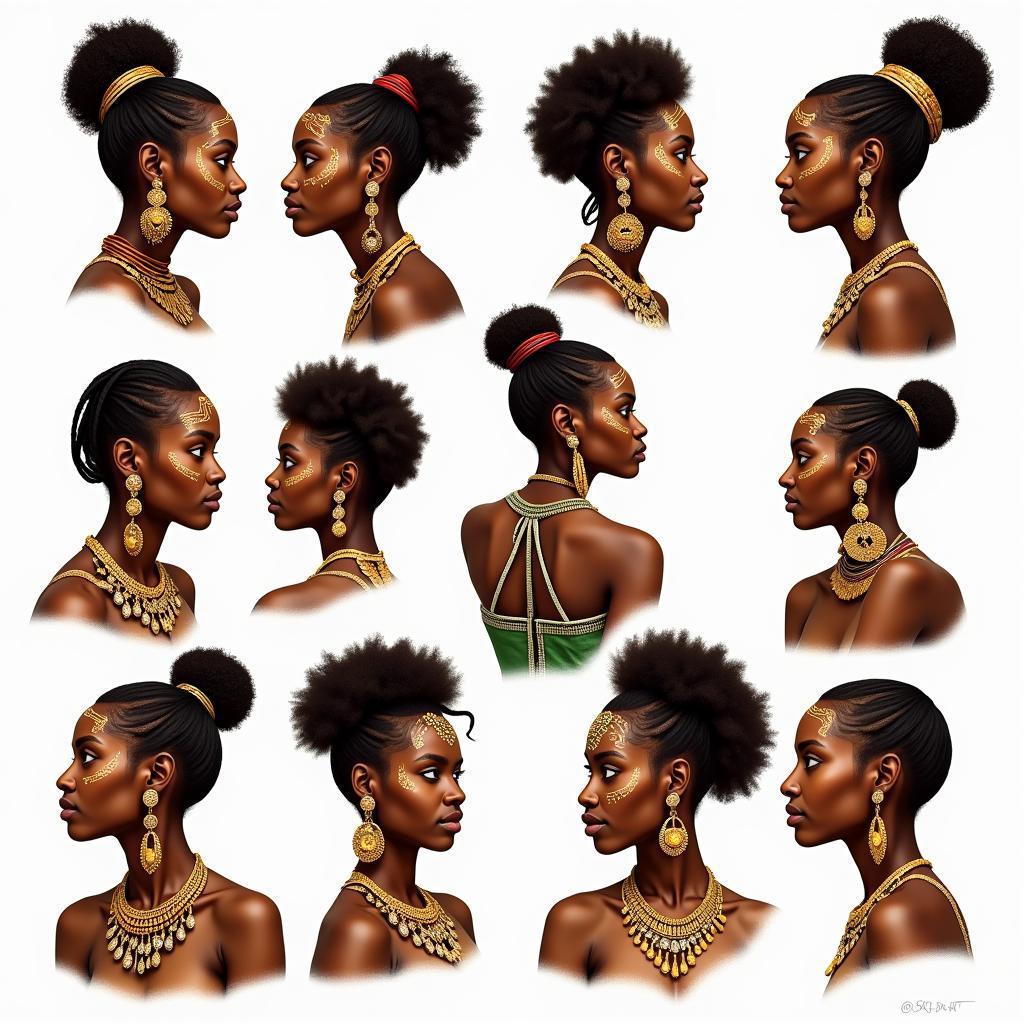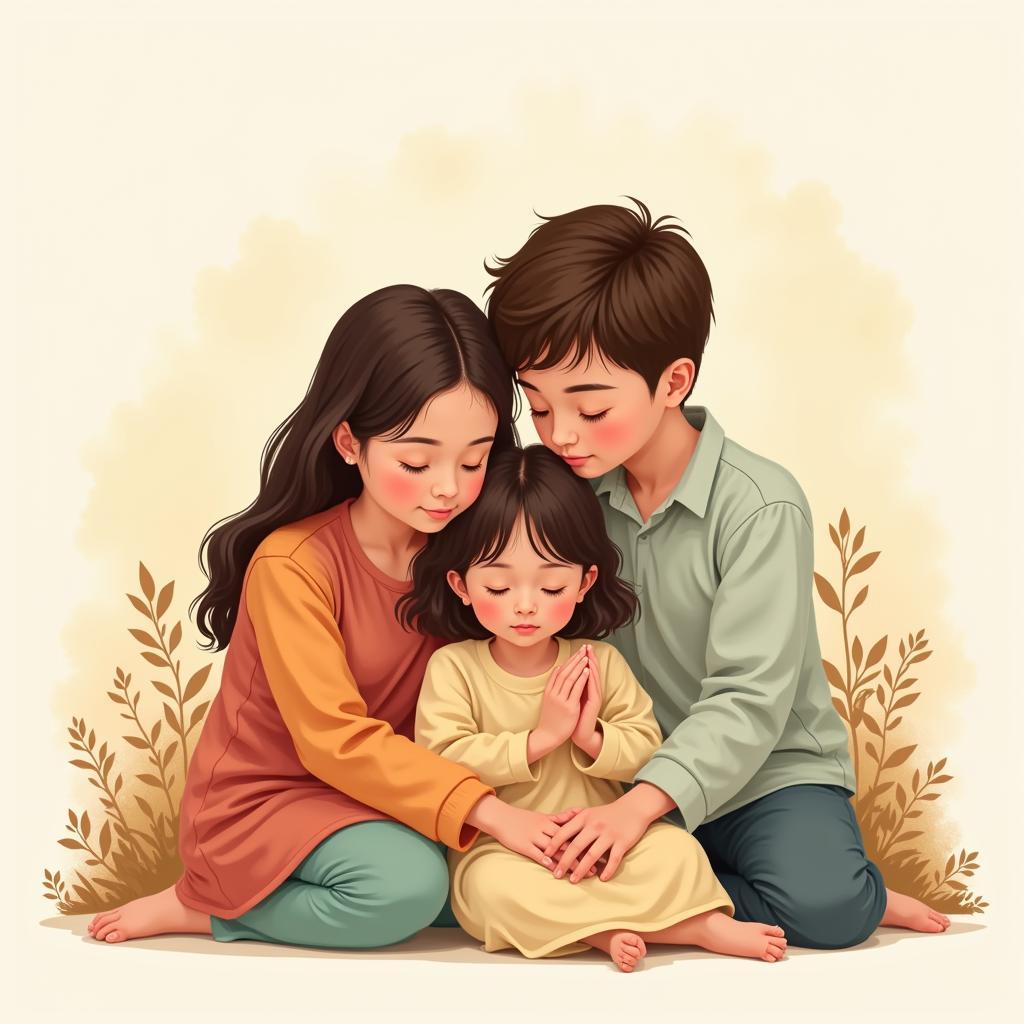Exploring the Rich Tapestry of African Kingdoms Culture
African Kingdoms Culture is a vast and fascinating subject, encompassing centuries of history, traditions, and artistic expression. From the mighty empires of Ghana and Mali to the smaller, but equally significant kingdoms of the Congo Basin and Southern Africa, this diverse tapestry of cultures has shaped the continent and continues to influence the world today. african kings & queens
The Rise and Fall of Great Empires: A Look at African Kingdoms Culture
The history of African kingdoms is filled with stories of powerful rulers, complex social structures, and remarkable achievements. The Kingdom of Kush, located in present-day Sudan, flourished for over a thousand years, leaving behind impressive pyramids and a legacy of trade and cultural exchange. Further west, the empires of Ghana, Mali, and Songhai controlled vast trade routes across the Sahara Desert, accumulating wealth and spreading Islamic learning. These empires not only fostered economic growth but also played a crucial role in shaping the cultural landscape of West Africa. The rise and fall of these kingdoms offer valuable insights into the dynamics of power, the impact of trade, and the enduring influence of cultural traditions.
The kingdoms of Southern Africa, while often overshadowed by their northern counterparts, also boast a rich history and unique cultural traditions. The Great Zimbabwe, with its impressive stone structures, stands as a testament to the architectural prowess and sophisticated social organization of the Shona people. Further north, the Kingdom of Kongo, known for its intricate political system and vibrant artistic traditions, played a significant role in the region’s history.
Art, Music, and Spirituality: Expressions of African Kingdoms Culture
African kingdoms culture is not just about kings and conquests; it’s also about the vibrant artistic expressions that reflect the beliefs, values, and everyday lives of the people. From the intricate bronze sculptures of Benin to the colorful textiles of the Ashanti, African art is renowned for its diversity and symbolic richness. Music and dance also played an integral role in the cultural life of African kingdoms, serving as a means of communication, storytelling, and spiritual expression.
What were the religious beliefs of these kingdoms? Many African kingdoms embraced a variety of religious beliefs, often incorporating elements of ancestor worship, animism, and, in some cases, Islam or Christianity. These beliefs shaped their worldview, influenced their social structures, and inspired their artistic creations.
African Kingdoms Clothe and Adornment: Symbols of Status and Identity
african kingdoms clothe Clothing and adornment played a significant role in the culture of African kingdoms, often reflecting social status, religious beliefs, and group affiliation. Elaborate textiles, intricate jewelry, and distinctive hairstyles served as powerful symbols of identity and belonging. In many kingdoms, the regalia of the ruler, such as crowns, staffs, and ceremonial robes, were imbued with symbolic meaning and served to reinforce their authority.
The Legacy of African Kingdoms Culture
The legacy of African kingdoms continues to resonate today. Their influence can be seen in the art, music, languages, and traditions of contemporary African societies. Understanding this rich history is crucial not only for appreciating the diversity of African culture but also for gaining a deeper understanding of the global historical narrative.
“The history of Africa is not just a collection of isolated stories; it’s a tapestry of interconnected narratives that have shaped the continent and influenced the world,” says Dr. Anika Mbeki, a renowned historian specializing in African history. “By studying the culture of African kingdoms, we gain valuable insights into the complex dynamics of human civilization.”
What factors contributed to the decline of some African kingdoms?
Various factors contributed to the decline of some African kingdoms, including internal conflicts, environmental changes, the impact of the transatlantic slave trade, and colonization.
“The transatlantic slave trade had a devastating impact on many African societies, disrupting social structures, fueling internal conflicts, and undermining economic development,” adds Professor Kwame Asante, an expert on the impact of the slave trade on African societies.
Conclusion: A Journey Through Time and Culture
Exploring african kingdoms culture is a journey through time, revealing the rich tapestry of human experience, resilience, and creativity. From the grand empires to the smaller kingdoms, each has contributed to the vibrant mosaic that is African history. Learning about these kingdoms is not just an academic exercise; it’s an opportunity to connect with the past, understand the present, and shape the future.
FAQ
- What is the significance of studying African kingdoms culture?
- How did trade influence the development of African kingdoms?
- What are some examples of significant architectural achievements in African kingdoms?
- How did religion shape the culture of African kingdoms?
- What is the lasting impact of the transatlantic slave trade on African societies?
african country nigeria
african x video com
Need support? Contact us 24/7:
Phone: +255768904061
Email: kaka.mag@gmail.com
Address: Mbarali DC Mawindi, Kangaga, Tanzania.


